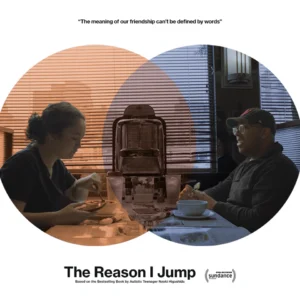How we stopped a deportation
Neurodivergent Labour and others worked effectively to win Osime’s Brown’s right to stay in the UK. This article is republished from Workers’ Liberty: https://www.workersliberty.org/index.php/story/2021-06-22/osime-brown-how-we-stopped-deportation
On 15 June, the Home Office decided that it would not proceed with their barbaric intention to deport autistic, learning-disabled man Osime Brown to a place he has no knowledge of.
The victory comes after more than a year of campaigning by a coalition of activists and organisations, under the instrumental guidance of Osime’s mum, Joan. When ND Labour came into the campaign about a year ago, awareness about the case was limited to a layer of autistic and neurodivergent activists and migrants’ rights groups. It was a campaign typical of the classic style: a petition and social media, drawing supporters to spread the message online, raise the petition numbers, and get media coverage.
Strong efforts had gone into laying the foundations — Autistic Inclusive Meets (AIM) in particular done important work amongst others. But we knew we had to raise the bar. We knew that the campaign had huge potential to rapidly grow because of the breadth and the significance of the issues that it highlighted — autism, migrants’ rights, and all at a time when Black Lives Matter protests were sweeping the country.
The role of Neurodivergent Labour in the campaign was to draw together the dimensions of the struggle — autism, migrants’ rights, racism, and the failures of educational and social care systems. This was something that happened organically, but it needed a more explicit voice. Even though our organisation is focussed on neurodivergence, we knew that it was no good just emphasising Osime’s autism, because, as cases like this show, you can’t just fight for autistic rights, while migrant rights are under attack; and you can’t fight for either of those things without recognising the history and daily reality of racial injustice. It was our job to tie these issues together, and to bring them into Labour and the trade unions in order to mobilise the power and the universality of the workers’ movement behind them. As a result, different, and hitherto disparate political activists and organisations became more understanding and sympathetic to struggles beyond their immediate horizons.
Along with many individual CLPs and trade union branches, two national unions supported the campaign. An Early Day Motion was tabled in Parliament led by Nadia Whittome and John McDonnell and we brought the experience of the Labour Campaign for Free Movement on board. We spoke at meetings, and pushed the issue into the movement from top to bottom.
Most importantly of all, we needed to move this issue from social media, onto the streets.
We were constantly stymied by lockdown regulations to hold a mass demonstration, although some smallish, weekday protests had happened prior.
By the time Kill the Bill Protests were happening across the country, Osime’s name was on placards and being talked about in speeches, and after some delay the campaign agreed to hold a march from the Home Office to Parliament Square before a final decision about whether to continue with the deportation was made. About 200 people turned up at short notice, and it was beautiful to see the flowering of a campaign that truly intersected across so many lines and campaigns.
We are proud of having played our role in this campaign. The best victories happen when grass-roots labour movement initiatives are willing to act as the adhesive that binds together the different elements of our class in all of its diversity.
• Osime still has an unjust conviction against his name. The campaign to clear him continues. Sign the new petition.
Share this content:













Post Comment